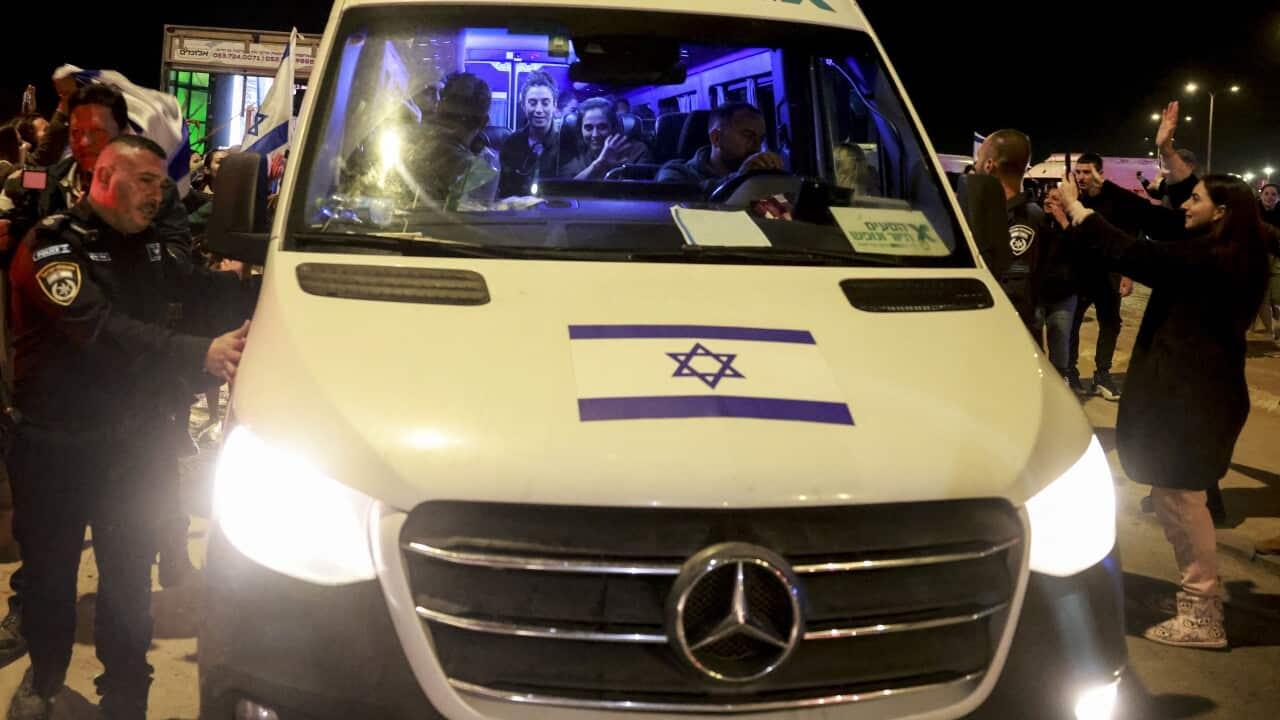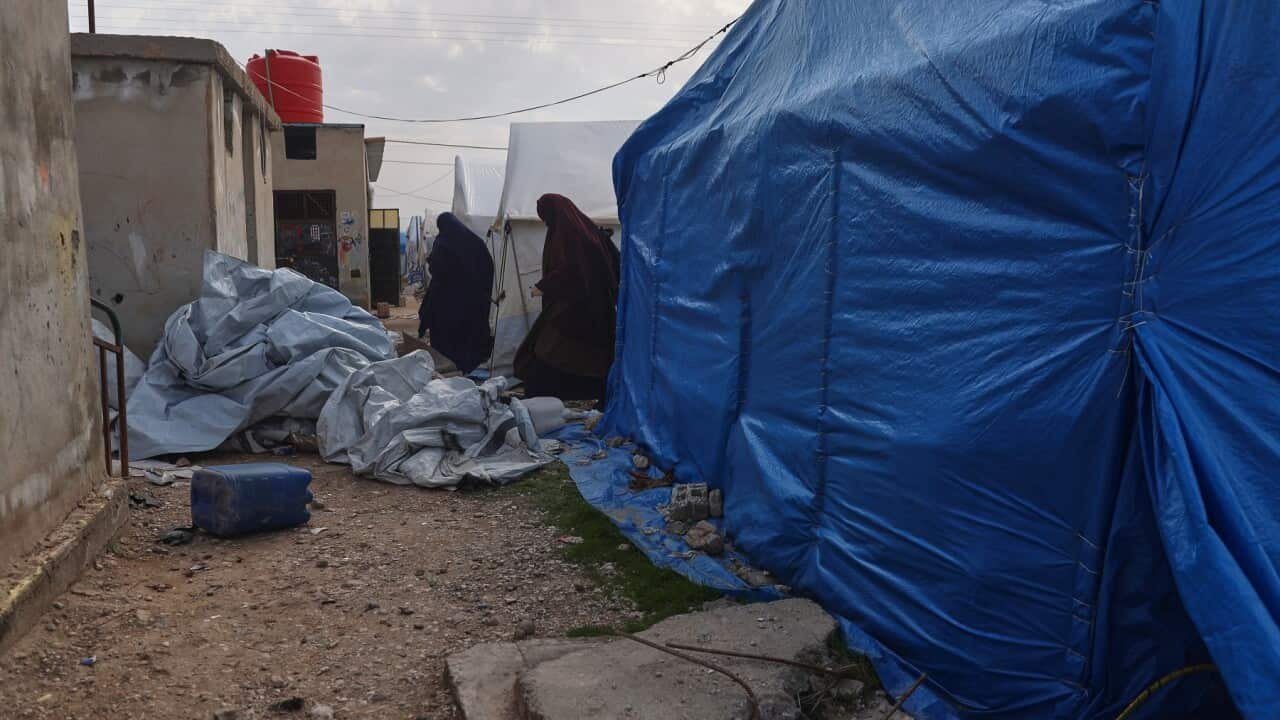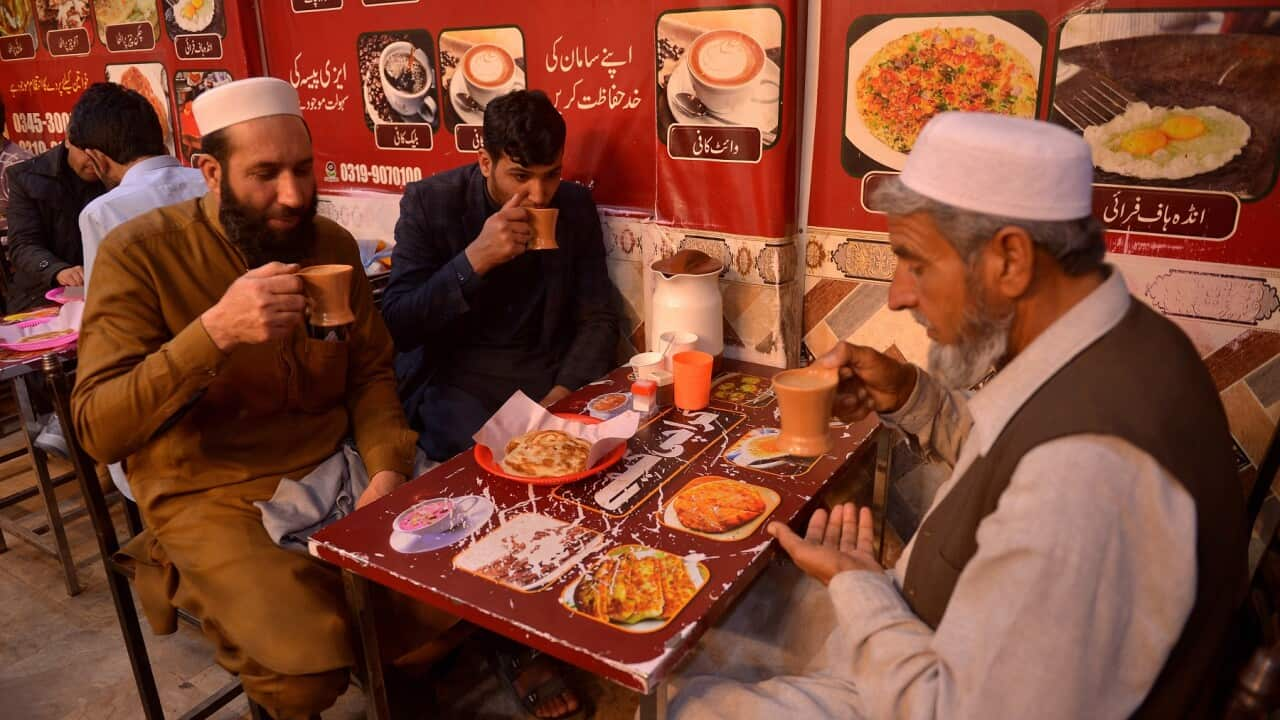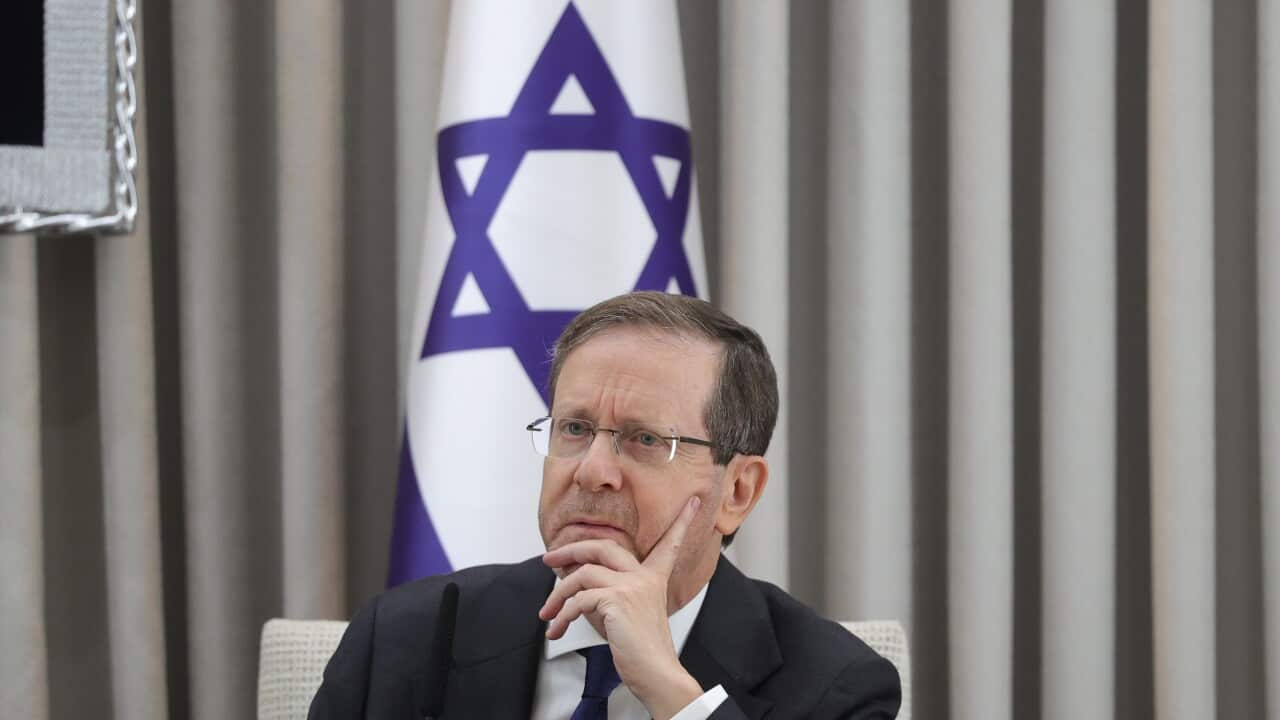Listen to Australian and world news, and follow trending topics with SBS News Podcasts.
TRANSCRIPT
Intense negotiations are underway to further extend the current ceasefire between Israel and Hamas to allow the exchange of further Israeli hostages and Palestinian prisoners and bring humanitarian aid into Gaza.
Mediated by Qatar with the help of Egypt and the United States, today marks the sixth exchange of Israeli hostages and Palestinian prisoners, on what is meant to be the final day of a two-day extension.
The United States Secretary of State Antony Blinken has travelled to Tel Aviv where he is expected to meet Israeli leaders and Palestinian President Mahmoud Abbas to discuss extending the pause in fighting.
Palestinian Foreign Minister Riyad al-Maliki has told a meeting of the United Nations the momentum being witnessed now must be sustained.
"We thank Qatar and Egypt for their efforts that led to a truce. But the truce must become a ceasefire, a permanent ceasefire. The massacres cannot be allowed to resume. This is not a war, this is a carnage that nothing and no-one can justify. It must be brought to an end."
Meanwhile, Israel's Ambassador to the United Nations, Gilad Erdan, says he believes anyone who supports a ceasefire will in effect support Hamas' continued reign of terror in Gaza.
"Colleagues, humanitarian aid is very, very important. But more food, water and medical supplies will not bring us closer to a solution. Hamas doesn't care about the people in Gaza. All they are interested in is implementing Hitler's final solution. And nothing can change a genocidal ideology. It must be uprooted and eradicated."
Israeli Prime Minister Benjamin Netanyahu says if and when the ceasefire ends, fighting will resume.
"In the last few days I hear a question – if after this phase of returning our abductees is exhausted, will Israel return to fighting? So, my answer is an unequivocally yes. There is no chance that we won't resume the fighting until the end. This is my policy, the entire cabinet stands behind it, the entire government stands behind it, the soldiers stand behind it, the people stand behind it - this is exactly what we will do."
Israeli military officials say another group of hostages has been released from Gaza: 10 Israeli hostages, two hostages with Russian citizenship and four hostages with Thai citizenship.
Qatar's spokesman for the military of Foreign Affairs, Dr Majed Al-Ansari, has confirmed the exchange in a post to X, formerly Twitter.
The Qatari Ministry of Foreign Affairs says among the Israeli hostages released are five children and five women.
And among the Palestinian prisoners released from Israeli prisons are 16 children and 14 women.
Hamas earlier released footage of two hostages released in advance of the group of 10, who were handed over to the Red Cross in the Gaza Strip.
Palestinian health officials say earlier, two Palestinian boys, aged eight and 14-years-old, were shot dead during an Israeli military raid in the West Bank town of Jenin.
The boys were identified as Adam Samer al-Ghoul and Basil Suleiman.
The circumstances surrounding the shooting remain unclear but a funeral has been held in their honour.
Footage has been released showing Palestinian mourners crying and people chanting in the streets as they carry the bodies for the procession.
Israeli officials have not commented on the two boys specifically.
But the Israeli military says it killed a senior Islamic Jihad commander and arrested 17 others during an operation targeting a refugee camp.
Violence in the West Bank has increased significantly in the weeks since the Israel-Hamas war erupted on October the 7th.
Meanwhile in Australia, the Sydney Theatre Company has apologised for its response to an onstage pro-Palestinian protest.
The STC initially distanced itself from the protest, which involved three actors wearing Palestinian keffiyeh scarfs during a curtain call on the opening night of Chekhov's play The Seagull on Saturday 25 Nov.
The Company has now released a statement saying it is deeply sorry for that initial response, which may have caused "hurt" in the community.
The statement says performers know they are free to "express their opinions and views" but it must be on their own platforms, because audiences come to the theatre to "experience the content in that play and that play only".













